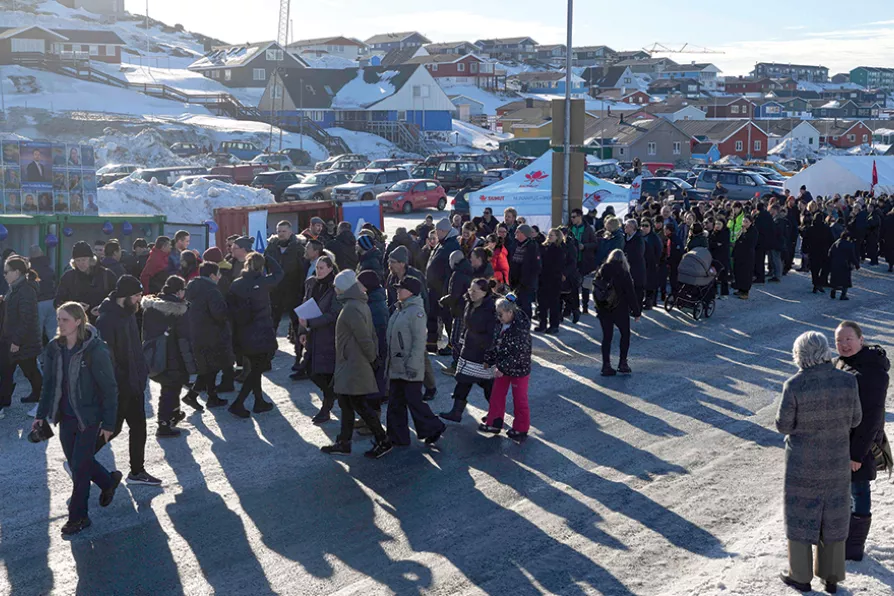As tens of thousands return to the streets for the first national Palestine march of 2026, this movement refuses to be sidelined or silenced, says PETER LEARY

 CRUNCH TIME: Voters queue outside a polling station in Nuuk, Greenland on Tuesday
CRUNCH TIME: Voters queue outside a polling station in Nuuk, Greenland on Tuesday
ON MARCH 11, Greenland went to the polls. Since 1979, Greenland has had its own prime minister who is able to govern at a local level. He or she has to come from the party with the most seats, which is currently the socialist Inuit Ataqatigiit party, with Mute Egede as prime minister. Pre-election polls indicated that the Ataqatigiit party would remain the strongest party.
The parliament — the Inatsisartut — has just 31 MPs who are chosen from six political parties, two of whom are in the governing coalition of the Inuit Ataqatigiit and the Simiut parties.
When it comes to bread-and-butter issues — cost of living, schools, healthcare — Tuesday’s election was “not that exceptional,” says Greenlandic politician Aaja Chemnitz Larsen. It will, though, potentially be the most significant in the island’s history.

Despite opposition from Greenland’s people and Denmark, Washington intends to control the Arctic territory one way or another. Strategic dominance, mineral wealth and military power are the driving forces at play, writes ROGER McKENZIE













